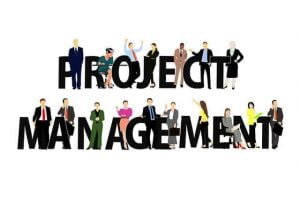Project management is an increasingly competitive field as more and more businesses are looking for qualified PMs to help them reliably deliver their most important projects. As demand is high, interest starts to grow as people realise that this is a challenging, interesting and lucrative career option. So it is important to make sure that you are always ahead of the game and continually developing your PM skills. So, let’s take a look at a number of ways you can become a better project manager.
Take time to reflect on previous projects and any mistakes that have been made
We all make mistakes. In fact, you will probably make quite a few during your life as a project manager. Nevertheless, what you do with these mistakes is what will make or break your career as a PM. After every project, you should take the time to reflect on it. What did you do right? What did you do wrong? How can you make sure that any errors do not happen again? Lessons learned are vital if you want to improve your team for the next project, ensuring a successful delivery.
Learn from other project managers
You can learn a lot by studying other more-experienced project managers and the different techniques and approaches they use. You can seek professional development in project manager networks to determine how other professionals are successfully managing their teams, time, budgets and scope. You would be surprised by how much you can learn by comparing notes with others, even those that operate in completely different industries to you, to become a better project manager.
Sympathise with people’s emotional resistance to change
When you implement a new process, you will probably find that there is a degree of resistance. After all, people just don’t like change. This is something you should sympathise with. Of course, you should still move forward with the changes you are introducing, but the way you go about it will make all of the difference. Explain why the new process is required, and be supportive of your team’s adjustments to the change you are making. To overcome the emotional response to something new, you can expect to use charts with statistics that visually highlights the advantages while also investing more in training to give people confidence to move forward with the new process. Simply having the attitude of “this is the change we’re making, deal with it” is not going to go down well, and will only create even greater resistance.
Advance your skills with project management training
You may assume that project management training courses are only for those starting out in project management. This is most certainly not the case. There are many different types of project management courses available; from beginner courses to highly advanced ones that lead to degree level qualifications and chartered status. You can plug any skill gaps you feel you have or simply refresh some of the methodologies and key principles of project management you learnt many years ago, in addition to boosting your career prospects.
Take advantage of the tools that are available to you
Today, there are many different project management tools on the market that can help you be a better project manager. You should take advantage of these. They will enhance communication, collaboration and organisation amongst your team. Needless to say, you need to select any software with care. Make sure it is easy to implement and that it is scalable, so that it can be adapted to your team and the demands of the project you are working on at any given time.
Communicate consequences
Something that most project managers have to deal with during every project is scope creep. To prevent this from happening, communicating consequences is a necessity. All project managers will deal with clients who contribute to delays on their project but if a client asks for something extra or an amendment, make sure you explain the consequences.
Make sure the approval process does not veer off track
You need to give enough time for the approval of any tasks and phases in the project. This includes time for the consequence of inaction. Use a wide range of reminders, for example, you can set a task reminder or send an email. If you are dealing with a stakeholder who does not usually respond, you should include something along the lines of: “if I don’t hear from you by ‘x’ date, I will assume that we are fine to move forward.”
Leverage your team’s collective strength
If you want to be a better project manager, you need to increase your appreciation and understanding for those on your team, as well as an appreciation and understanding of yourself. By understanding the experience, feelings, interests, skills, and strengths of yourself and everyone on your team, you will be able to ensure that you are using everyone’s strengths to full effect for the benefit of the project, and be building a motivated project team.
Be fearless
As a project manager, you need to be fearless. Issues, no matter how big or small, should not faze you. This is because one of your key skills is problem solving. This does not mean that you need to solve every problem by yourself. The best project managers know when they should engage other people to help them with the issue, and they know who they should be engaging. Plus, if you do not address issues head on, they are only going to result in more serious and more long lasting problems, which could have a significant impact on your credibility as a team leader, as well as the success of the project. Because of this, you need to adapt a fearless approach. Trust in yourself and your abilities, and deal with any issues as soon as they arrive to avoid them manifesting into something more serious.
Have a backup plan
Life really goes to plan, right? It’s highly unlikely that all of your projects are going to pan out exactly how you intended them to. This is why it is important to have a backup plan in place. This will ensure that you are ready to transition quickly and easily should you need too.
Hold regularly scheduled meetings
It is vital to hold project meetings that will benefit everyone that is involved. Approval and feedback from both parties will help to shape the final outcome. It is important to communicate regularly to ensure that everyone is on the same page. If needed, you should schedule meetings around specific points of delivery within your project, therefore, making sure that everything moves at a set pace.
Embrace a preventative mindset
As a project manager, you will spend a lot of your time resolving problems and putting out fires. However, if you want to be a better project manager you also need to ask yourself why these issues are happening in the first place. Are these problems preventable? You will find that the vast majority of issues are completely preventable. Therefore, by exploring project difficulties early on, you can stop issues from occurring later on in the project, i.e. when they are more damaging.
Take time to understand your team’s duties and responsibilities
You need to be familiar with what each member of your team does. This is not to say that you need to become an expert in their role. However, if you become familiar with the details, it will help you to have a greater appreciation of what they do, as well as being able to more quickly and easily fill their position should they have to leave for any reason.
Over-communicate
It is always better to over-communicate, rather than not telling your team enough. Not only should you over-communicate in terms of the information you provide your team with, but also with regards to communicating with your stakeholders. Get clarification on everything and ask as many questions as are required to fully understand an issue.
Work smarter, not harder
When looking for ways to become a better project manager, the simple solution may seem to be to work harder. Surely, by putting in more hours, you will get better results? This could be the case, but it is not the best way to go about it. Instead, you need to look for ways to work smarter. Improving your processes and efficiencies is the key to success. You should also make sure you document any performance methods that are successful so you can use them again and again. After all, you can never be too efficient.
Remember failure is more than just one factor
When a project fails, we have a tendency to look for the one cause of failure. Something that we can blame everything on. However, it is highly unlikely that there is only going to be one factor causing failure. It’s much more likely that there will be several contributing factors. You need to study the combination of circumstances and factors that caused the project to go wrong if you are to prevent similar failures on future projects.
Pay close attention to detail
One of the quickest ways to become a better project manager is to pay closer attention to detail. This is critical to ensure that deadlines are met. After all, a project consists of a number of moving targets, all of which need to be monitored. You also should not be afraid to follow up with team members for a status update. You may not want to annoy them or put pressure on them, but you need to be informed throughout each step.
Share why the due date is the due date
Whether it is the overall project deadline or the due date for a specific task, don’t merely communicate the date itself, but make sure that all team members are aware of the reasons why this is the due date. This will help all team members to see why it is important to work efficiently and meet deadlines.
Make an effort to curb scope creep
This is something that was touched upon earlier in this discussion. Nevertheless, mastering it is critical if you want to be a better project manager. There are numerous ways you can curb scope creep. This includes letting clients know if their request is not in their best interest, and mentally include another round of feedback, revisions, and other additional steps before you have the client sign off on scope and budget.
Be honest and realistic
Transparency and honesty are critical when it comes to planning and the delivery of work. You should never bend the truth to impress the client. It will only come back to haunt you in the end, and often you can set your team up for failure because you end up over promising. Moreover, if you want to get honest feedback and opinions, you need to be honest yourself.
Write everything down
You are going to be constantly getting new information as a project manager, and you will need to juggle multiple tasks. It is important to write everything down. While you may think that simply remembering the vital details will suffice, this will not work. You will end up forgetting something down the line. However, your notes will give you a reference point to ensure you can always go back and check on something if need be – another simple way to become a better project manager.
Practice perseverance
Every project tends to be a long journey that is filled with numerous setbacks. As time passes, you are likely to experience more and more setbacks. This starts to result in failed tasks or missed deadlines, and the scope, timescale and objectives are then going to be questioned. It can become very frustrating and disheartening. However, if you want to be a better project manager you need to persevere and focus on the original project objectives, justification and scope.
As you can see, there are many different ways you can become a better project manager. This is important because you will instil confidence in your team and achieve better results. Moreover, you will solidify your position as an integral part of the company you work for while also improving your career options for the future if you do decide to move on.




